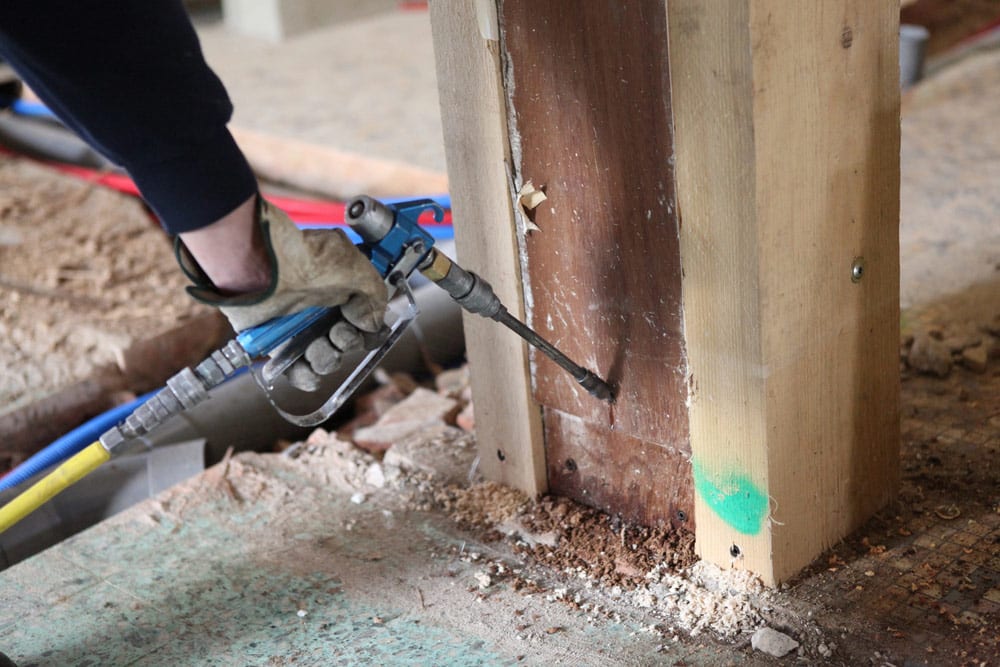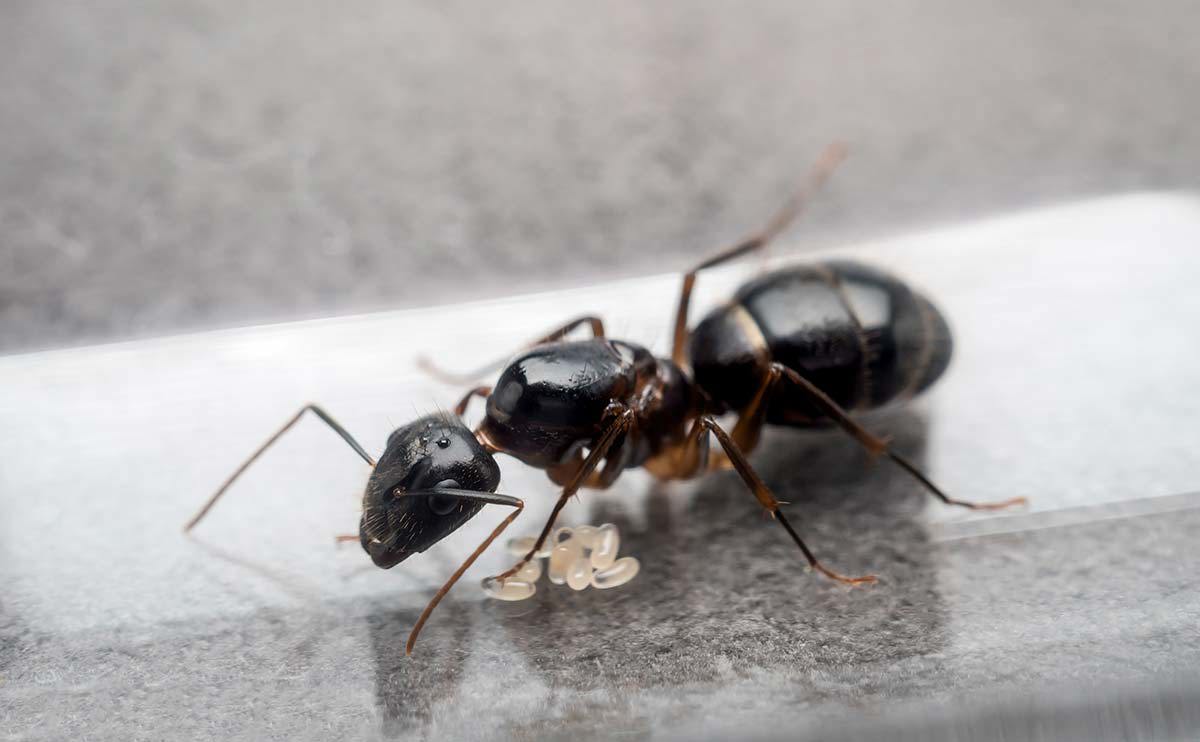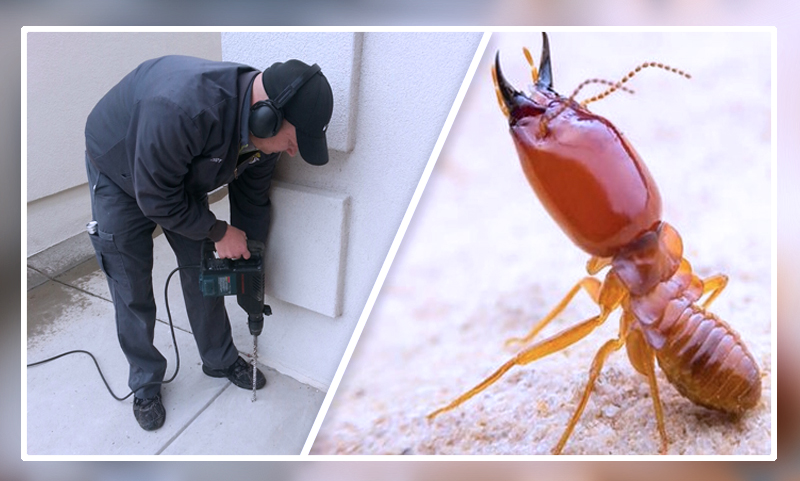Top-Rated Termite Control Services: Guarantee Long-Term Security for Your Home
Top-Rated Termite Control Services: Guarantee Long-Term Security for Your Home
Blog Article
Ecological Effect of Parasite Control: Harmonizing Effectiveness With Sustainability
The ecological impact of pest control is a critical concern that calls for a fragile balance between achieving efficiency in making sure and taking care of parasites sustainability of our communities. From the use of damaging chemicals that leak right into our dirt and water to the unplanned effects on non-target varieties, the repercussions of conventional insect control methods are significant.
Unsafe Chemicals in Pest Control
The use of unsafe chemicals in insect control presents considerable ecological and wellness threats that call for careful factor to consider and reduction methods. Herbicides, insecticides, and chemicals are frequently utilized to eradicate pests, but their prevalent application can cause unplanned repercussions. These chemicals can infect dirt, water sources, and the air, affecting not just the targeted parasites however likewise helpful pests, wild animals, and humans.

To resolve these risks, incorporated parasite management (IPM) methods are being promoted as a much more lasting choice. IPM entails a mix of techniques such as organic control, environment adjustment, and the targeted use chemicals as a last resource (ant control harrisburg nc). By embracing an all natural technique to pest control, we can minimize the ecological and health and wellness impacts related to unsafe chemicals while successfully managing pest populaces
Effect On Non-Target Species
Considering the unplanned repercussions of bug control techniques, the effect on non-target varieties is a critical facet that needs complete analysis. While parasite control steps intend to target specific insects, other microorganisms in the ecological community may be unintentionally influenced. Non-target types, consisting of valuable bugs, birds, creatures, and even plants, can experience straight or indirect injury from pesticide applications or biological control approaches.
Pesticides developed to battle a specific bug bug may hurt pollinators like or all-natural predators such as ladybugs. Organic control representatives, if not species-specific, can present risks to unexpected targets, interfering with the ecological equilibrium.
To mitigate the effect on non-target varieties, integrated insect monitoring (IPM) techniques that emphasize a holistic method to pest control are recommended. These approaches focus on making use of ecologically friendly practices, reducing damage to valuable microorganisms while effectively handling pest populations. Carrying out complete risk assessments and keeping track of the outcomes of pest control initiatives are vital steps in protecting non-target species and advertising total ecological community health.
Soil and Water Contamination
Unexpected ecological repercussions of insect control approaches extend past impacting non-target types, with significant ramifications for soil and water contamination - termite control services. Pesticides, herbicides, and chemical plant foods utilized in bug control can seep right into the dirt and infect groundwater, positioning a risk to both earthbound and water environments.
Water contamination is an additional important problem connected with parasite control techniques. To reduce dirt and water contamination from insect control activities, incorporated pest monitoring methods that prioritize sustainability and minimize chemical inputs are vital.
Air Air Pollution From Pesticide Usage
Exposure to air-borne pesticides throughout agricultural applications poses a significant concern for air contamination control steps. Furthermore, pesticide drift, where pesticides are lugged by the wind to unexpected locations, can lead to the contamination of close-by ecological communities and water bodies.

Approaches for Sustainable Bug Control
In the world of agricultural methods, applying sustainable parasite control methods is critical for keeping environmental balance and protecting crop returns. Lasting insect control highlights using eco-friendly approaches to manage insect populaces successfully while reducing harm to non-target microorganisms and ecosystems. Integrated Parasite Administration (IPM) is an extensively embraced method that incorporates biological, social, physical, and chemical control methods to accomplish lasting insect management services.
One key technique in sustainable pest control is promoting biodiversity within agroecosystems. By boosting all-natural adversaries of parasites, such as predators and parasitoids, farmers can decrease the requirement for artificial pesticides. Plant turning and diversity are likewise reliable methods to disrupt pest life process and create less desirable problems for insects to prosper. In addition, using pest-resistant crop ranges and employing techniques like trap chopping can help in reducing bug stress without counting greatly on chemical interventions. Inevitably, by incorporating these sustainable insect control methods, farmers can accomplish click for more info a balance between pest administration performance and environmental stewardship.
Verdict
Finally, the environmental influence of insect control methods have to be meticulously taken into consideration to stabilize effectiveness with sustainability. Damaging chemicals used in pest control can cause soil and water contamination, air pollution, and injury non-target varieties - termite control. It is essential to carry out sustainable parasite control approaches to lessen these negative results on the setting and promote a much healthier community for future generations
By adopting an all natural technique to pest control, we can reduce the ecological and health impacts associated with unsafe chemicals while effectively managing pest populations.

To reduce the air pollution caused by pesticide use, it is necessary to take on integrated parasite administration strategies that prioritize the usage of non-chemical insect control approaches, such as crop turning, natural killers, and immune plant varieties. Lasting pest control highlights the usage of ecologically pleasant methods to take care of pest populaces properly while lessening harm to non-target microorganisms and communities. Integrated Pest Monitoring (IPM) is an extensively embraced approach that incorporates biological, social, physical, and chemical control techniques to accomplish long-term bug monitoring solutions.
Report this page